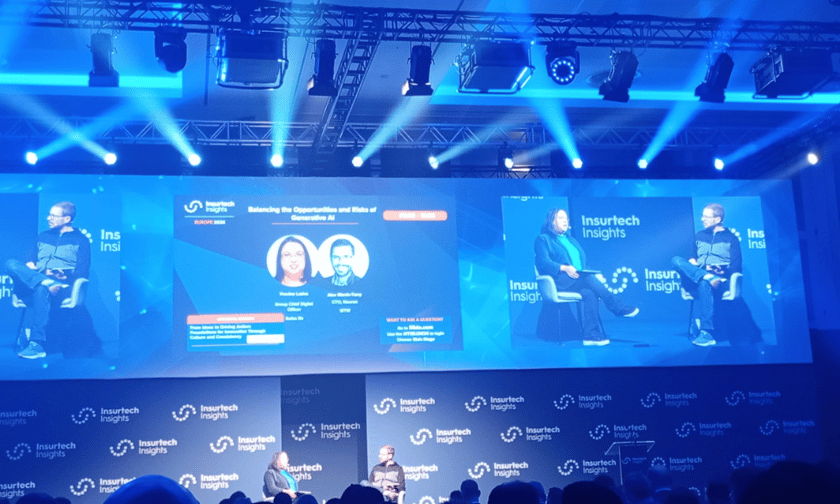

“It’s up to all of us to make sure GenAI does not end up being the next big hype - its potential is simply too promising.”
That was the message from Pravina Ladva, group chief digital and technology officer at Swiss Re, who joined Alex Morris-Tarry, chief technology officer of Neuron, WTW’s digital re/insurance platform at the 2024 iteration of Insurtech Insights Europe to discuss ‘Balancing the opportunities and risks of generative AI’.
The far-reaching implications of the technology were under the microscope at the summit with Ladva highlighting that there have been many examples of a new technology or topic that becomes hotly debated for a year or two only to seemingly disappear. While she doesn’t think this is going to happen with AI, she said, the onus is on the industry to set clear parameters for what AI is and is not capable of.
Morris-Tarry noted that, over time, technology tends to become embedded within organizations and taken for granted – and that AI is unlikely to be an exception to this rule. Ladva compared the potential of AI to moving from using a standard calculator to a scientific calculator, and suddenly having access to a “magic” tool that empowers the user with greater creative freedom, within the boundaries of great security and governance.
“There are fears [around AI] and we have to open around that,” she said. “It’s things like, if you want an email or another communication, how would your team feel if they knew it wasn’t you and you’re just getting a machine to do it? Does it artificially inflate the amount of work that we do, because it’s easier to do it? Does it dumb down the thinking because we’re getting the machines to do it? These are all on the softer side of the implications of this technology that we need to think about.”
It’s important that the industry is cognizant of the way in which technology is used and its societal impact in order to unlock its full potential, said Morris-Tarry. One of the key concerns being voiced around this technology is what impact it might have on businesses that have traditionally been filled with people from less advantageous backgrounds. Essentially the question is – “How do we go about making sure that we’re not just trying to replace wholesale with AI tools?”
There are a couple of schools of thought around this question, Ladva said, and the difficulty is not talking about the vision around AI and the benefits of its use case, but rather how you can prove that. One part of that is about proving its efficiencies but you’ve also got to think about the other side of the equation which is how it can support what you are doing today while creating solutions for customers and clients that previously didn’t exist.
The market needs to think about generative AI as an opportunity for innovation and creativity, as well as a tool to help everybody do their jobs better, she said. And the risk is that the industry will zero in on just one side of the equation.
Ladva’s message to the market about generative AI was clear: “Just get out there and start doing it. Make the impact, start trialling. The longer you sit there strategizing about what this will do, the longer it will take to have an impact. The technology is the technology. We all know what it can do, a plan on its own is not going to make a difference.
“So, think about the change parameters, think about the revenue we can create. And think about the efficiencies we can create but don’t just think about the efficiencies.”
